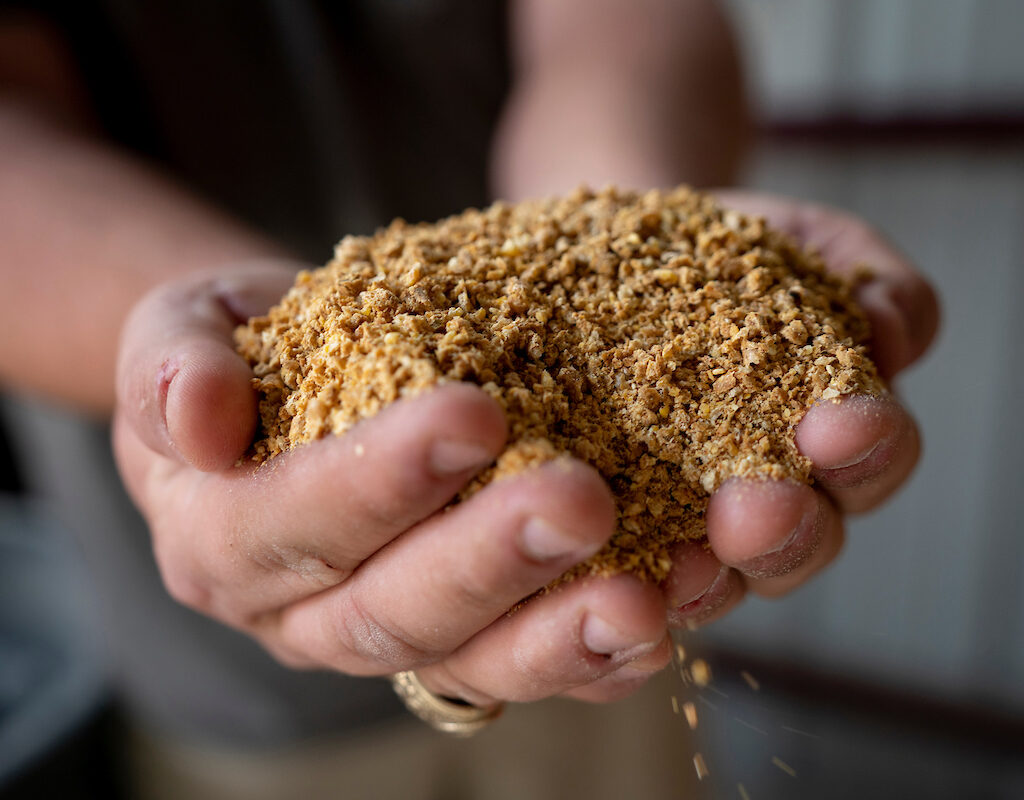
Overview
Texas A&M Veterinary Medical Diagnostic Laboratory offers 18 nutritional tests to detect minerals and metals in different animal specimens or water samples.
Contact
Brandon Dominguez
Veterinary Diagnostician
483 Agronomy Road
College Station, TX 77843
M-F 8:00 a.m. – 5:00 p.m.
The Texas A&M Veterinary Medical Diagnostic Testing, TVMDL, offers multiple tests to assess an animal’s nutritional needs or conditions that may be a result of poor nutrition. Using a variety of sample types, TVMDL can determine mineral, metal, and vitamin levels. This information can be used by veterinarians and/or animal owners to develop nutritional plans, assess herd health, address health concerns, and more.
About TVMDL
TVMDL tests thousands of specimens from clients across Texas, in neighboring states and around the world every business day, protecting the health of livestock, poultry, companion animals, exotic animals, racing animals and wildlife. Veterinarians, animal owners, animal industries and government agencies depend on TVMDL’s expertise for early detection and control of diseases. TVMDL also belongs to a nationwide network of laboratories that provide surge-testing, response and recovery capacity in the event of an animal disease outbreak. Over its history, TVMDL has played a critical role in recognizing and containing outbreaks of anthrax, avian influenza, chronic wasting disease, equine piroplasmosis and many other economically devastating animal diseases.
General Testing
For inquires about available tests, specimen types, test prices, or turnaround times, please refer to the <a href="https://tvmdl.tamu.edu/tests/">TVMDL test catalog</a>. Clients may search the catalog by a test’s name or test code. The test catalog may also be accessed via the TVMDL Mobile app.
Emergencies
TVMDL does not see or treat animals. If you have clinical requests or need immediate assistance with an animal emergency, please contact a veterinary clinic.
More choices in Animals & Livestock
- Course
This 1-hour online course helps veterinarians become more knowledgeable about the Texas Pullorum-Typhoid (PT) program in Texas. Learn all about PT testing procedures and sampling techniques. Enroll today!
- Course
Master oral reason for horse judging competitions with our expert-led video from the 2023 national champion Texas A&M Horse Judging Team. This LearnNow video offers step-by-step instruction, expert tips, and real example sets. Perfect for youth and collegiate contestants and their coaches. Enroll today!
- Course
Diseases in horses can spread rapidly, posing significant risks to herd health. This 1.5-hour self-paced course is designed to help horse owners and professionals identify, prevent, and manage common equine diseases. Covering both viral and bacterial infections, the course emphasizes the importance of routine vaccinations and effective biosecurity practices. By understanding how to spot and control these diseases, participants can reduce risks and ensure the well-being of their horses. Enroll today to protect your equine partners and enhance your knowledge.
- Course
This course is designed for teachers to assist student learning for the Veterinary Science Certificate Program. This learning management system includes all 100 lessons found in Veterinary Science: Preparatory Training for the Veterinary Assistant.
- Publication
This 12-page publication provides information on distinguishing venomous snakes from nonvenomous species and safety tips on how to stay safe.
- Publication
This book will provide a sound platform for students to master the knowledge and skills needed to become a veterinary assistant and to pursue a rewarding career as part of a professional team dedicated to providing the best animal and public health care available in the United States.
